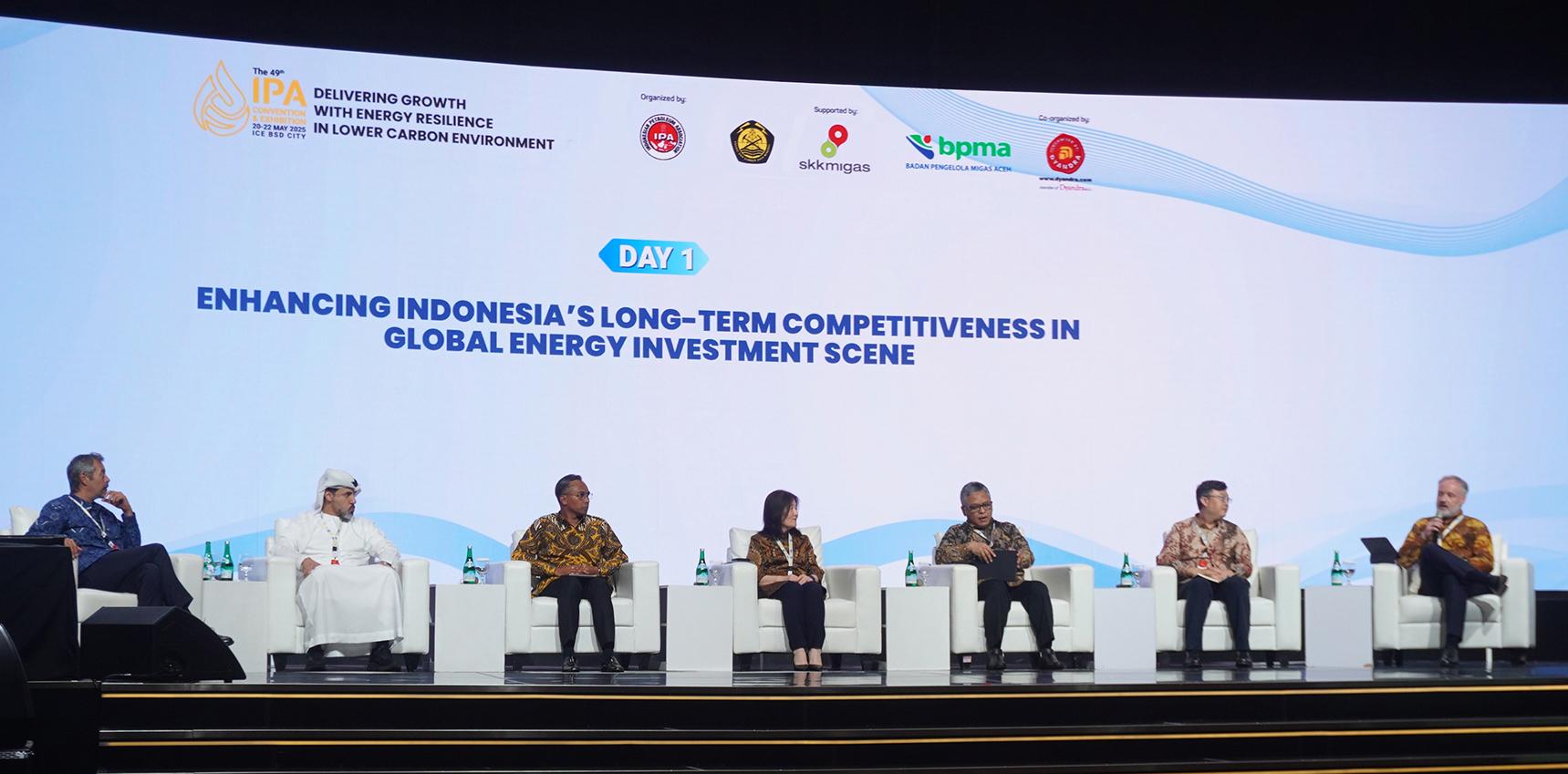
TANGERANG – Recent reforms implemented by the government, in collaboration with upstream oil and gas industry stakeholders, are beginning to yield positive results. Investment interest in oil and gas exploration in Indonesia continues to escalate, fueled by significant discoveries in recent years that have revitalized industry optimism.
During the plenary session titled "Enhancing Indonesia's Long-Term Competitiveness in the Global Energy Investment Scene" at the IPA Convention & Exhibition (IPA Convex) 2025, held at ICE BSD City, Tangerang on May 20, executives from global oil and gas companies reaffirmed their commitment to Indonesia as a top-tier investment destination for exploration.
Roberto Daniele, Managing Director of ENI Muara Bakau, emphasized that Indonesia is currently the primary focus of ENI’s exploration activities. “We can confidently state that Indonesia ranks at the top of our global exploration plans,” stated Roberto.
ENI is recognized as one of the companies behind the largest oil and gas discoveries, including the major Geng North find—one of the most significant global discoveries in recent years. To expedite development, ENI plans to undertake three additional drilling projects this year.
Adnan Bu Fateem, Chief Operating Officer of Mubadala Energy, affirmed that Indonesia represents a key strategic market within the company's global portfolio.
“Having operated in Indonesia for 12 years, our recent discoveries align perfectly with our forward-looking strategy,” he explained.
Adnan underscored the urgency of accelerating gas project development to meet national energy requirements.
Kathy Wu, Regional President for Asia Pacific G & LCE at bp Indonesia, stated that Indonesia possesses substantial oil and gas potential and holds an important position within bp’s global portfolio. She reiterated bp’s long-term investment commitment to Indonesia.
“Exploration demands strong government support. While significant improvements have been made, contract assurance, fiscal stability, and investment return certainty remain critical—especially for complex projects. The right incentives will significantly enhance project sustainability,” Kathy elaborated.
Currently, bp Indonesia stands as the largest gas contributor in the nation, producing approximately 600 MMscfd, processed at the Tangguh LNG plant the second-largest LNG facility in Indonesia.
Yuzaini Md Yusof, President Director & Country Chairman of PETRONAS Indonesia, remarked that assessment conducted in collaboration with international consultants indicates Indonesia’s growing appeal as an oil and gas investment destination, particularly concerning fiscal terms and support for frontier exploration.
Having operated in Indonesia for over two decades, PETRONAS has observed significant enhancements in regulations and fiscal schemes.
“We are optimistic that Indonesia will continue to be a key component of our portfolio. Legal certainty and long-term contracts spanning 30 to 35 years are critical for sustaining our investments,” stated Yuzaini.
From a national perspective, Awang Lazuardi, Director of Production and Development at Pertamina Hulu Energi (PHE), highlighted the importance of stakeholder support, particularly in streamlining permit processes, to ensure the economic feasibility of oil and gas projects.
“There is significant room for improvement in the licensing system. We sincerely hope for government backing to create simpler and more efficient processes, as time sensitivity plays a crucial role in the economics of these projects,” he explained.
In agreement, Wang Lei, President Director of PetroChina International Jabung Ltd, reiterated that Indonesia’s potential in the oil and gas sector remains substantial and can be effectively harnessed with the appropriate technology.
“Streamlining administrative systems—including expediting the Plan of Development (POD) review process and reducing the number of required permits—would greatly facilitate the development of oil and gas blocks,” he asserted. (***)
Untuk informasi lebih lanjut, silakan menghubungi:
Posman Sianturi – IPA Communication Officer